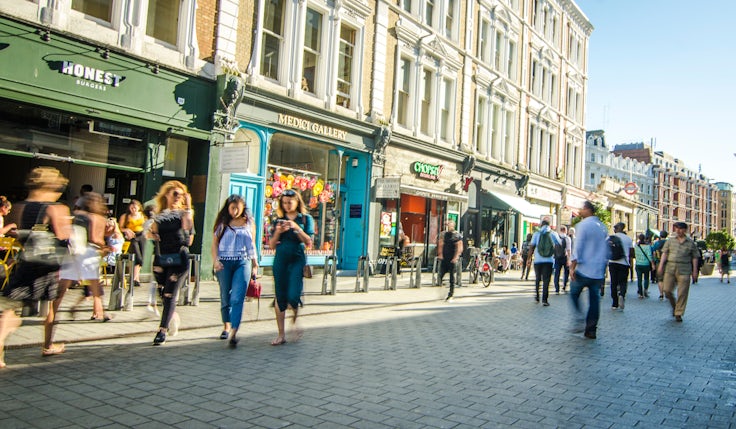Summer discounting sees retail prices fall for first time in three years
Retailers opting for heavy discounts on summer fashion and household goods have driven the first fall in retail prices for almost three years, but inflationary pressures remain.
 Retail prices have fallen for the first time in almost three years, after a sustained period of inflation. Figures from the British Retail Consortium (BRC) published today (27 August) show year-on-year deflation of 0.3% in August, compared to inflation of 2% in the previous month.
Retail prices have fallen for the first time in almost three years, after a sustained period of inflation. Figures from the British Retail Consortium (BRC) published today (27 August) show year-on-year deflation of 0.3% in August, compared to inflation of 2% in the previous month.
However, the good news may be tempered by predictions rising energy costs will cause overall inflation to rebound later in the year. Consumers hoping for a reduction in their weekly grocery bills may also be disappointed, with falling retail prices focused on non-food ranges.
Overall food inflation in August was at 2%, down from 2.3% in July. Fresh food inflation fell from 1.4% to 1%.
The fall in prices is, at least in part, due to retailers discounting unsold summer stock as the end of the season looms, according to the BRC.
“This was driven by non-food deflation, with retailers discounting heavily to shift their summer stock, particularly for fashion and household goods,” says BRC chief executive Helen Dickinson.
“This discounting followed a difficult summer of trading caused by poor weather and the continued cost of living crunch impacting many families. Food inflation eased with fresh food prices, especially fruit, meat and fish, seeing the biggest monthly decrease since December 2020 as supplier input costs lessened.”
Price pressures on basic food products may continue, however. Dickinson argues that with the outlook for commodity prices remains uncertain due to the impact of climate change on harvests domestically and globally, as well as rising geopolitical tensions, brands could face renewed inflationary pressures over the next year.
Consumers show sharp contrast between views on personal versus national finances
Meanwhile, other factors could mean some volatility in inflation and a fragile relief for consumers who have been struggling to pay their bills. Capital Economics has forecast overall inflation will increase by 2.9% in November, after energy watchdog Ofgem announced the energy price cap will rise by 10% to £1,717 per year for a typical household.
The Consumer Price Index rose by 2.2% in the 12 months to July 2024, up from 2% in June.
While consumer sentiment on their personal finances are becoming more positive, their perception of the wider UK economy is far more negative, according to August’s GfK Consumer Confidence Index.
The headline figure for August is unchanged from last month at -13. July’s overall consumer confidence figure was at the highest level since September 2021, meaning consumers are continuing to feel more confident than they have done for almost two years.
Looking back over their personal finances for the last year, consumers are more positive than they were last month, with this score up one point to -7. While still in negative territory, this score is eight points higher than at this time last year.
Equally, the score for how consumers feel about their personal finances for the next 12 months has risen by three points to +6, nine points ahead of this time last year.
However, according to GfK figures, confidence in the general UK economy has continued to decline. Looking back over the past year, confidence in the UK economy is down three points on last month to -35. While this may appear very negative, this figure is 17 points higher than the index in August 2023.
Looking at the wider economic picture, several factors – including a July drop in base interest rates, growing demand for public sector pay increases and energy prices – could impact headline inflation figures, with a knock-on effect for retail prices.






